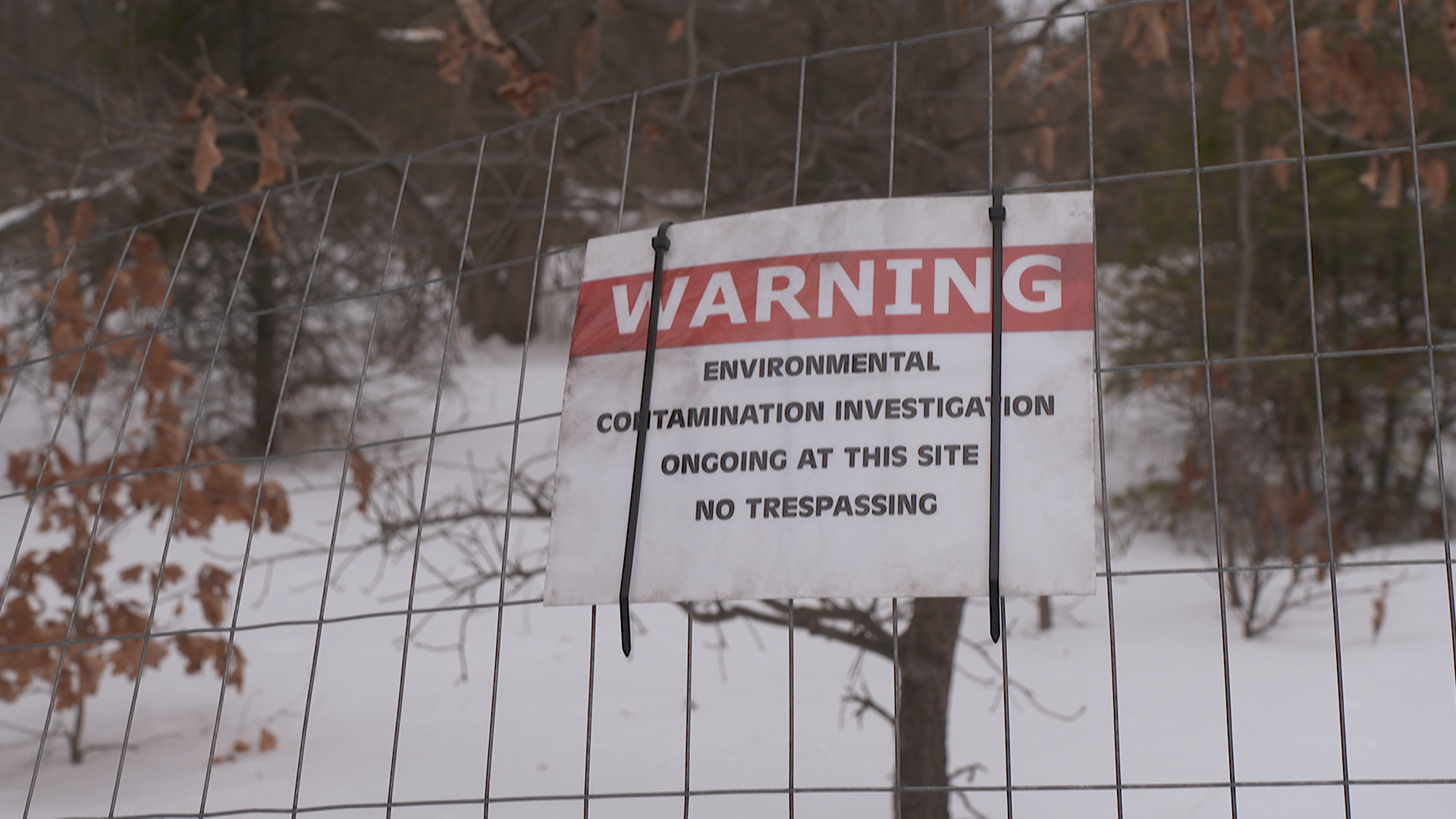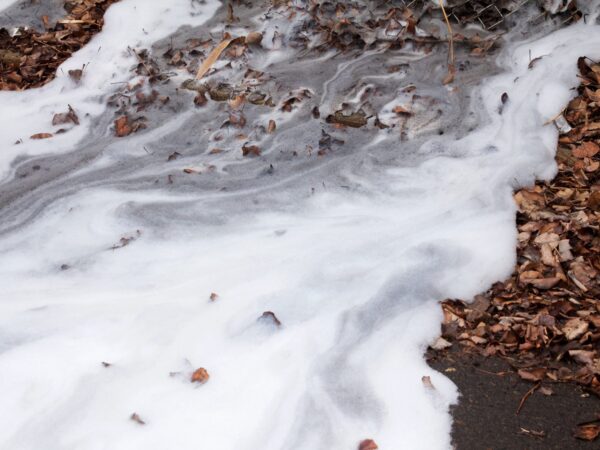
By Kelly House, Bridge Michigan
The Great Lakes News Collaborative includes Bridge Michigan; Circle of Blue; Great Lakes Now at Detroit Public Television; and Michigan Radio, Michigan’s NPR News Leader; who work together to bring audiences news and information about the impact of climate change, pollution, and aging infrastructure on the Great Lakes and drinking water. This independent journalism is supported by the Charles Stewart Mott Foundation. Find all the work HERE.
- Attorney General Dana Nessel sued FKI Hardware to remove PFAS and other chemicals from soil and groundwater at 9 sites
- Regulators repeatedly reached out to FKI, but the company has refused to cooperate, the suit said
- The company was formerly known as the Keeler Brass Company, founded in west Michigan in 1893
Michigan Attorney General Dana Nessel is suing the out-of-state owners of a formerly Michigan-based furniture hardware company, alleging it contaminated the state’s soil and groundwater with PFAS and other chemicals.
Nessel filed the lawsuit Thursday against FKI Hardware Inc. in Kent County Circuit Court. The suit blames the company for contaminating nine west Michigan properties in Grand Rapids, Kentwood, Zeeland, Middleville, Grandville, Lake Odessa and Cedar Springs before it finished operating in Michigan around 2016.
It’s the latest in a series of suits by Nessel’s office against companies tied to PFAS and other chemical contamination in hundreds of sites across Michigan.
Various iterations of the California company have owned the former Keeler Brass Company since 2006, changing its name repeatedly through a series of mergers. Bridge Michigan was unable to immediately reach a spokesperson for FKI or its associated companies for comment Thursday.
Nessel wants the court to order the company to investigate and address the contamination, and pay damages and fines for tainting soil and groundwater with volatile organic compounds, PFAS and metals. Both PFAS and the volatile organic compound TCE, or Trichloroethylene, are used in metal finishing processes. PFAS keeps mist at bay during metal plating, while TCE is a metal degreaser.
“Michigan residents deserve to be safe from environmental contamination in their communities,” Nessel said in a statement Thursday. “Companies that do business in Michigan, pull up stakes and leave their communities with contaminated air and water will pay the price.”
Nessel’s office claimed in a release Thursday that TCE may be escaping the ground and wafting into the air at some sites, exposing residents to unhealthy air. At least one such site, a former foundry and metal plating facility on Godfrey Avenue Southwest in Grand Rapids, poses “an imminent and substantial endangerment to human health and the environment,” according to the lawsuit.
The suit states that the Michigan Department of Environment, Great Lakes and Energy has sent multiple violation notices and other correspondence to FKI in response to the contamination since 2018, but “defendant has refused to take the actions specifically and repeatedly requested by EGLE to investigate and address the risks.”
FKI is the latest in a host of companies sued by the state for their alleged role in Michigan’s PFAS contamination crisis. In 2020, Nessel announced a sweeping lawsuit against 17 companies, including 3M and DuPont, alleging the PFAS manufacturers knew for decades their products posed health risks, but “intentionally hid” those concerns from the public.
One of those cases, against plastics manufacturer Asahi Kasei Plastics North America, was moved to Livingston County Circuit Court, where a jury trial is set to begin in December. Others have been removed to federal court in South Carolina as part of a multi-district litigation that consolidates thousands of PFAS lawsuits from across the U.S.
Hundreds of sites across the state are contaminated with toxic per- and polyfluoroalkyl chemicals, which are used in non-stick and waterproof coatings and deployed as fire and fume suppressants in the military and industry. State officials have said the cancer-causing “forever chemicals” may have been used at as many as 11,000 sites.
West Michigan PFAS activist Sandy Wynn Stelt hailed Thursday’s lawsuit as a warning to companies that have used and misused PFAS that “you can’t just stonewall” when regulators detect contamination.
Keeler Brass was founded in Middleville, Michigan in 1893, and grew to become North America’s largest furniture hardware manufacturer before undergoing a series of mergers starting in the mid-2000s.
“This is another company that says they’ve been here for 100 years,” said Wynn Stelt, who became a prominent PFAS activist after learning of tainted groundwater beneath her Belmont home that investigators linked to tannery waste from longtime Michigan shoe company Wolverine Worldwide. “So it’s very disappointing, because I think we could have good corporate citizens if people wanted to be.”
Michigan and two Kent County townships in 2020 reached a $69.5 million settlement with Wolverine. The company agreed to connect about 1,000 homes to municipal water after their private drinking wells were contaminated by PFAS. A host of other lawsuits remain pending against Wolverine and other parties tied to Michigan’s PFAS problems.
While cases wend their way through the courts, environmentalists are hoping the U.S. Environmental Protection Agency’s recent proposal to classify two PFAS compounds as hazardous substances will spark more progress on cleanups at contaminated sites.
The agency recently proposed listing PFOA and PFOS under the Comprehensive Environmental Response, Compensation, and Liability Act, the law that governs federal cleanup of contaminated sites. Such a listing would trigger the federal government’s “polluter pays” policy. That policy holds companies liable for cleanup costs if they’re deemed responsible for the pollution.
“It would be a really big step forward,” said Anthony Spaniola, who co-chairs the Great Lakes PFAS Action Network alongside Stelt and has spent years sparring with the U.S. Air Force over PFAS contamination at the former Wurtsmith Air Force Base in Oscoda.
EPA officials have also said they will propose an enforceable federal drinking water standard for PFAS by the end of the year, with a final rule expected in 2023.
Catch more news at Great Lakes Now:
Evers administration relaunches efforts to limit PFAS
Michigan property owners settle PFAS case for $54 million
Featured image: Sign warning for environmental contamination (Great Lakes Now Episode 1012)




